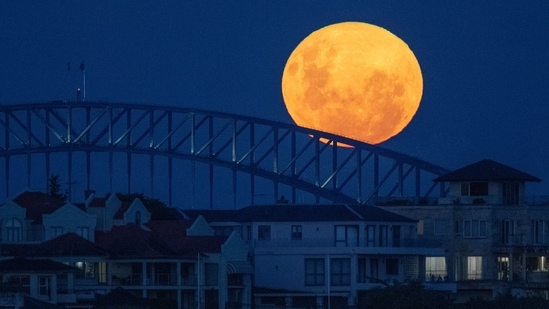Lunar eclipse, Supermoon and Blood Moon : All coming together on May 26
According to the National Aeronautics and Space Administration (NASA) of the US, the total lunar eclipse would start at 4:47:39 am EDT. In India, it will be visible at around 2:17 pm and will end at 7:19 pm.

People around the world will witness a supercelestial event as the first lunar eclipse of 2021 will take place on May 26. What will make this even more special as it will coincide with a supermoon, a lunar eclipse and a red blood moon all at once!
According to the National Aeronautics and Space Administration (NASA) of the US, the total lunar eclipse would start at 4:47:39 am EDT. In India, it will be visible at around 2:17 pm and will end at 7:19 pm.
What is a Super Moon?
NASA defines Super Moon occurrence as when a full or new Moon coincides with its closest approach to the Earth. The closest point on the orbit is called “perigee,” and when the full Moon appears at the perigee, it looks slightly brighter and larger than a regular full Moon, hence the name “Supermoon”
Normally it is difficult to differentiate between the normal Moon and a supermoon, but if you compare it with two pictures side by side, it shows a difference in size.
What is lunar eclipse?
A lunar eclipse is when the earth comes between the Sun and the Moon, blocking the sunlight from falling on the Moon. There are two kinds of eclipse, partial and total, depending on how much earth’s shadow has covered the Moon. This can only happen during the full Moon.
May 26’s eclipse is a total lunar eclipse when the Moon and Sun are on opposite sides of Earth, forming a straight line and completely covering the Moon.
Best places to see Lunar Eclipse
The best place to see the eclipse will be the middle of the Pacific Ocean, Australia, the east coast of Asia and the west coast of America. It will be visible on the eastern half of the US, but only the very earliest stages before the Moon sets.
What is red blood Moon?
During the eclipse, when the Moon is covered by the earth’s shadow it goes darken, however, it doesn’t go completely black. Instead, the Moon takes a red colour, therefore total lunar eclipse is often called red or blood moon.




